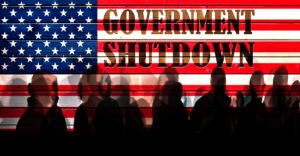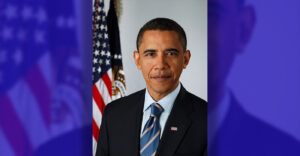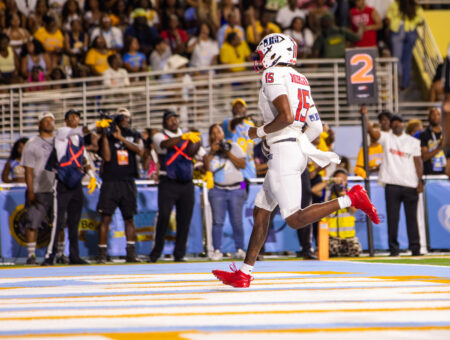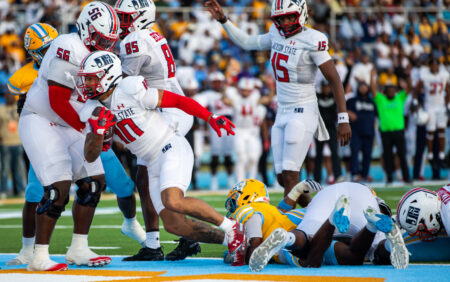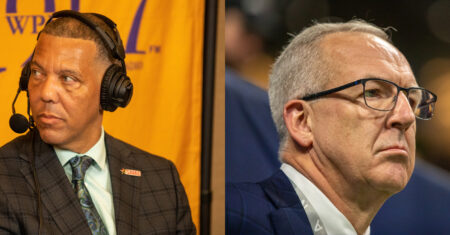Notice: Trying to get property 'post_title' of non-object in /home/ofzfvenynm4q/public_html/wp-content/plugins/wp-rss-feed-to-post/includes/wprss-ftp-display.php on line 109
It wouldn’t surprise us if the McCaskey family, owners of Chicago’s beloved, ever-struggling Bears, felt a pang of optimism following a preseason in which the team went undefeated and looked a bit less like an Arena Football League also-ran. In their final tuneup against the Cleveland Browns, the offense gelled as quarterback Justin Fields threw three touchdowns in the first half. Perhaps the team’s arrow is up — Bears fans can only bear down and hope.
But there’s another mission on the McCaskeys’ minds that’s arguably even more tantalizing than the team’s prospects for the 2022 regular season. Bears executives continue to forge ahead with the team’s declared intent to purchase Arlington International Racecourse in northwest suburban Arlington Heights and build a new stadium at the site. The closing could take place sometime in 2023.
Advertisement
Whether the Bears actually end up in Arlington Heights remains an open question. Though the team has said that’s their aim, Chicago Mayor Lori Lightfoot has stepped up her bid to keep the Bears in the city, offering a colossal sweetener in the shape of a proposal to revamp Soldier Field into a domed stadium that would expand seating capacity from 61,500 to 70,000.
We’ve been skeptical about the “Hail Mary” nature of Lightfoot’s offer, and insistent that any Soldier Field makeover that benefits the Bears should be paid for by the Bears and not taxpayers.
Advertisement
But what about Arlington Heights? Is there an appetite in the northwest suburb for shelling out taxpayer money to have the Monsters of the Midway running curl routes and safety blitzes on their home turf?
A recent poll suggests that residents of Arlington Heights relish the idea of the Bears coming to town. The survey, carried out by a libertarian-minded group called Americans for Prosperity-Illinois, found that 72% of respondents backed the Bears’ bid to build a stadium at the site of the racetrack.
But the poll also asked another important question. Would residents support using tax dollars to help the team build its football stadium? Among respondents, 68% said no way.
That’s a message that the Bears, and Arlington Heights Mayor Tom Hayes, should heed.
The Bears aren’t a semipro team from Sioux City, Iowa. They’re a charter member of the National Football League and a $4 billion business, according to Forbes magazine. They have the means to build a stadium from the ground up, if they choose. There’s no need whatsoever for the team to approach Arlington Heights taxpayers for a helping hand.
A disturbing trend surrounding the construction of professional sports stadiums in the U.S. has made a big comeback in the last couple of years. Once again, multibillion-dollar franchises are building new multimillion-dollar stadiums, and getting massive tranches of cash from taxpayers to do it.
According to the Athletic sports website, NFL, Major League Baseball and National Basketball Association teams built or revamped 60 stadiums and arenas between 1992 and 2008 for a collective price tag of $17.1 billion, and 68% of that amount came from public sources. That reliance on taxpayer money dropped off sharply from 2009 to 2020, largely due to the economic broadside that the Great Recession delivered to cities.
But the trend toward teams getting big-time help from taxpayers has returned — and state and local politicians seem clueless about the trend’s costs and consequences.
Advertisement
One of the most egregious examples is Buffalo, New York, where state officials have agreed to heap onto the shoulders of taxpayers $850 million of the $1.4 billion price tag for a new stadium for the Buffalo Bills. The team’s owners, Terry and Kim Pegula, are reported to have a net worth of $5.8 billion. Having taxpayers foot much of the bill for a billionaire couple’s new football stadium makes as much sense as coaxing former quarterback Jay Cutler out of retirement to run the Bears offense one more time.
New York taxpayers aren’t the only victims of reckless management of public money. Maryland plans to spend $1.2 billion to overhaul the Camden Yards Sports Complex, home to Baltimore’s Orioles baseball team and the city’s Ravens football franchise. Tennessee’s governor wants state lawmakers to say yes to $500 million in bonds for a new stadium for the Tennessee Titans. Virginia officials are dangling $350 million in taxpayer money to entice the Washington Commanders to build a new stadium in their state.
Governors and mayors who push the idea of subsidizing NFL stadium construction with hard-earned taxpayer money typically join the teams in saying to taxpayers, don’t worry, the investment will more than pay for itself in the economic impact it generates in years to come.
But experts who have studied the use of subsidies for stadiums say that’s not the case.
Dennis Coates, an economics professor at the University of Maryland at Baltimore County has studied the economic impact of pro sports teams in major cities. “The data disprove the claim that a city can use stadium and arena construction, or the attraction or retention of a professional sports franchise, to enhance the income of its citizens,” Coates wrote in a 2015 op-ed in the Orange County Register. “In the economics of both sports and public policy, resources are scarce and must be put to their best use.”
Arlington Heights citizens’ reluctance to use taxpayer subsidies for a Bears stadium in their suburb, as reflected in the poll results, hews closely to Coates’ thinking. Spending mounds of taxpayer money on building new football stadiums benefits the teams and the politicians who can tout in campaign ads that they lured a pro team to town, or kept one from leaving.
Advertisement
But there’s no benefit for taxpayers — only the pain of knowing that billionaire team owners are laughing all the way to the bank.
The McCaskeys have every right to move their massively valuable franchise to Arlington Heights. But they shouldn’t ask the suburb’s citizens for a dime for a new stadium. Neither should Mayor Hayes.
Join the discussion on Twitter @chitribopinions and on Facebook.
Submit a letter, of no more than 400 words, to the editor here or email letters@chicagotribune.com.
